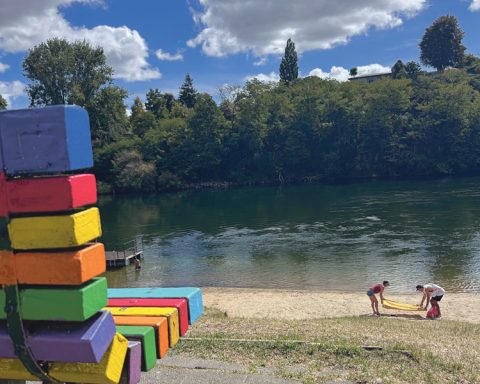As interest rates continue to drop, most economic commentators are picking that the property market will pick up into next year with more transactions happening and some modest value increases.
Over the last 20 years, every time the Official Cash Rate (OCR) has dropped the number of property transactions has increased, so it’s not too far fetched to think the market will soon get busier. Anecdotally, since the OCR cut in August we’ve seen a significant lift in new enquiries from investors, first home buyers, and movers.
At present, although across NZ buyers are getting more active, sellers are getting more active as well meaning that for now, there remain excess properties on the market for the number of buyers. In most parts of NZ it’s still a buyers’ market.
Property developers have been less active over the last 2 years and building consent numbers have been well down, whilst net population growth is up. This makes me think that when we eventually return to a sellers’ market we’ll start to see more ‘off the plans’ property contracts come across our desks.
So what is an ‘off the plans’ property contract and what are the potential risks and rewards?
With an ‘off the plans’ sale & purchase contract, you’re agreeing to purchase a completed dwelling and the land it’s on from a property developer. Typically, the construction hasn’t yet started or is part way through. The developer’s financiers will often want a certain number of ‘pre-sales’ before agreeing to finance the bigger project.
Once you’ve done your due diligence (obtained finance approval, had the contract checked by your Lawyer, valuation completed, done your homework on the developer, etc) you typically pay a 10% deposit to secure the property, then there’s nothing to pay until the Council Code of Compliance comes through, at which point you’ll normally have between 5 & 10 days to pay the remaining 90% of the purchase price.
When everything goes right there can be some great upsides including:
Securing a property at today’s price with only a 10% deposit down when the values are going up
Potentially needing only a 5% deposit overall if owner occupied or 10% if investment
Ending up with a brand new home/rental with possibly a 10 year guarantee
However, everything doesn’t always go right. In fact over the last 3 years we’ve seen a lot that have gone wrong. For example:
Developers going bust before the construction is completed. Where does this leave the 10% deposit that you paid? This is a key part of the contract that you need to seek Legal advice on before putting pen to paper, along with finding out as much as you can on the developer (ie: first time developers vs highly experienced long term developers, previous bankruptcies, etc).
Signing up for ‘X’ and on completion you’re delivered ‘Y’. Again, the devil is in the detail of the contract; you may be signing a contract that gives the developer flexibility to make changes that you may not be happy with.
Timeframes getting pushed out. This has been the most problematic issue we’ve seen in the last few years. We’ve seen a lot of purchasers being told it’s 6-8 months until completion; it’s common for this to go out past a year and we’ve even seen over 2 years on many occasions. The big problem with this is that a construction mortgage approval will be valid for a maximum of 12 months (some banks less). If the construction is delayed past this point you have to re-apply and you’re assessed on the criteria of the day. We’ve seen a number of people no longer qualify for the loan they previously did, leaving them unable to complete the purchase, which can mean loss of deposit.
Values decreasing before construction is completed. This is another major. We’ve seen people sign up to $1m ‘off the plans’ purchases and then 18months later when completed the valuation is $850,000. They still have to pay the full $1m. This can cause issues with equity which again could lead to not being able to complete the purchase. This could lead to not only loss of the 10% deposit, but if the developer can only re-sell for $850,000, the original purchaser may be liable for the difference between the $1m they signed up at and the $850,000 resale value.
‘Off the plans’ or ‘Turnkey’ property contracts need extra homework done and it’s essential to engage the experts before signing a contract. Although you’ll never be able to remove all the risk, your professional support team will be able to give you strategies to minimise the risks.











